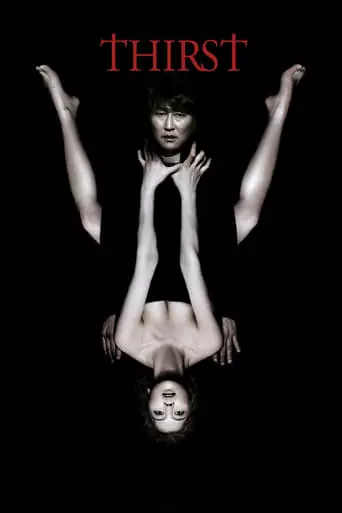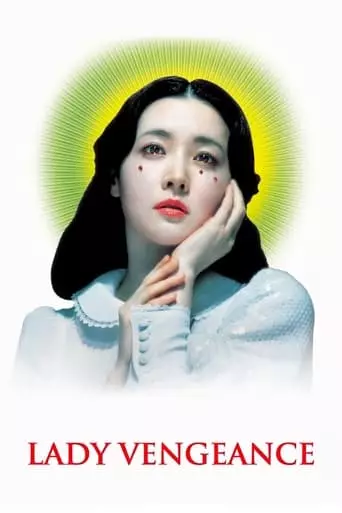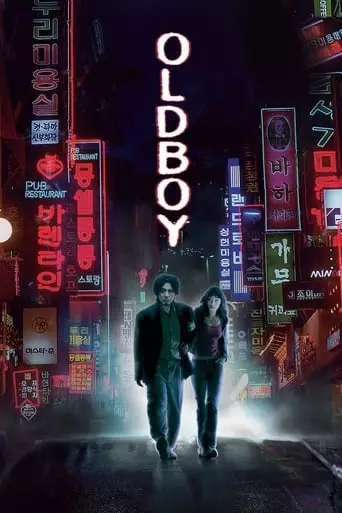A respected priest volunteers for an experimental procedure that may lead to a cure for a deadly virus. He gets infected and dies, but a blood transfusion of unknown origin […]

A respected priest volunteers for an experimental procedure that may lead to a cure for a deadly virus. He gets infected and dies, but a blood transfusion of unknown origin […]

Young-goon, mentally deranged and frequently electro-charging herself with a transistor radio, has been admitted into a mental institution. Firmly believing herself to be a cyborg, she refuses to consume like […]

Two North Korean soldiers are killed in the border area between North and South Korea, prompting an investigation by a neutral body. The sergeant is the shooter, but the lead […]

Released after being wrongfully convicted and imprisoned for 13 years, a woman begins executing her elaborate plan of retribution. Lady Vengeance is the final installment in Park Chan-wook’s Vengeance Trilogy, […]

With no clue how he came to be imprisoned, drugged and tortured for 15 years, a desperate businessman seeks revenge on his captors. Oldboy (2003), directed by Park Chan-wook, is […]

After India Stoker’s father dies, her Uncle Charlie, who she never knew existed, comes to live with her and her unstable mother. She comes to suspect this mysterious, charming man […]
Park Chan-wook: The Master of Cinematic Artistry and Psychological Thrills
Park Chan-wook is one of the most celebrated directors in contemporary cinema, renowned for his visually stunning films, complex narratives, and exploration of moral ambiguity. Hailing from South Korea, Park has captivated audiences worldwide with his masterful storytelling, blending genres such as thriller, romance, and horror with poetic beauty and unflinching intensity. Best known for his Vengeance Trilogy and the critically acclaimed The Handmaiden, Park has cemented his place as a visionary filmmaker whose work transcends cultural and linguistic boundaries.
Early Life and Inspirations
Born on August 23, 1963, in Seoul, South Korea, Park Chan-wook grew up with a deep appreciation for art and storytelling. Initially aspiring to be an art critic, Park studied philosophy at Sogang University, where he founded a film club and discovered his passion for cinema.
His admiration for directors like Alfred Hitchcock, Ingmar Bergman, and Robert Bresson heavily influenced his early career. Hitchcock’s Vertigo, in particular, left a lasting impression on Park, inspiring his meticulous approach to visual storytelling and his exploration of obsession and human frailty.
The Road to International Acclaim
Park Chan-wook’s first two films, The Moon Is the Sun’s Dream (1992) and Trio (1997), received little attention, but they laid the groundwork for his distinct cinematic voice. His breakthrough came with Joint Security Area (2000), a politically charged thriller about the volatile relationship between North and South Korea. The film became a massive box-office success in South Korea and garnered critical acclaim for its suspenseful narrative and humanistic approach to geopolitical tensions.
The Vengeance Trilogy: A Defining Masterpiece
Park’s international reputation skyrocketed with his Vengeance Trilogy, a trio of films that explore themes of revenge, morality, and the cyclical nature of violence.
Sympathy for Mr. Vengeance (2002): The first installment is a harrowing tale of desperation and tragedy, following a deaf-mute man’s quest to save his sister, which spirals into a series of devastating events.
Oldboy (2003): Widely regarded as Park’s magnum opus, Oldboy is a neo-noir revenge thriller that stunned audiences with its shocking twists, visceral action, and philosophical depth. The film won the Grand Prix at the 2004 Cannes Film Festival and solidified Park as a global auteur.
Lady Vengeance (2005): The trilogy’s final chapter focuses on a woman seeking retribution after being wrongfully imprisoned. Combining stunning visuals with moral complexity, the film is both haunting and poetic.
The Vengeance Trilogy is a profound exploration of human suffering and the cost of vengeance, earning Park comparisons to filmmakers like Quentin Tarantino and Martin Scorsese for its bold storytelling and stylized violence.
Expanding Genres and Global Recognition
After the success of his Vengeance Trilogy, Park continued to push the boundaries of cinema, delving into new genres and themes:
I’m a Cyborg, But That’s OK (2006): A whimsical romantic comedy set in a psychiatric hospital, showcasing Park’s lighter, more playful side. The film highlights his ability to balance dark themes with humor and tenderness.
Thirst (2009): A sensual and subversive take on the vampire genre, Thirst explores themes of desire, guilt, and morality. The film won the Jury Prize at the Cannes Film Festival, further cementing Park’s reputation as a bold and innovative filmmaker.
Stoker (2013): Park’s first English-language film, Stoker is a gothic psychological thriller starring Mia Wasikowska, Nicole Kidman, and Matthew Goode. The film received praise for its atmospheric visuals and unsettling narrative, proving Park’s ability to adapt his style for an international audience.
The Handmaiden: A Triumph of Artistry
In 2016, Park released The Handmaiden, a lavish adaptation of Sarah Waters’ novel Fingersmith, set in 1930s Japanese-occupied Korea. The film follows a con artist, a maid, and a wealthy heiress in a tale of deception, passion, and liberation.
Praised for its intricate storytelling, lush cinematography, and exploration of female agency, The Handmaiden became one of Park’s most acclaimed works. It won the BAFTA for Best Film Not in the English Language and was celebrated as a modern masterpiece, further solidifying Park’s place among the greatest filmmakers of his time.
Themes and Style
Park Chan-wook’s films are characterized by their meticulous craftsmanship and thematic depth. His works often explore:
Moral Ambiguity: Park challenges audiences to grapple with complex ethical dilemmas, avoiding clear-cut notions of good and evil.
Human Desire and Obsession: His characters are driven by intense emotions, whether love, revenge, or longing, leading to both beauty and tragedy.
Visual Poetry: Park’s films are renowned for their striking cinematography, intricate framing, and symbolic use of color and composition.
His ability to balance brutal violence with moments of tenderness and dark humor sets him apart, creating a signature style that is both provocative and profoundly moving.
Legacy and Future Projects
Park Chan-wook’s influence on global cinema is undeniable. His ability to blend Eastern and Western storytelling sensibilities has inspired countless filmmakers and brought South Korean cinema to the forefront of international acclaim.
In recent years, Park has expanded into television, directing the critically acclaimed BBC series The Little Drummer Girl (2018), based on John le Carré’s novel. His upcoming projects include Decision to Leave (2022), a romantic mystery that promises to continue his tradition of masterful storytelling.
Conclusion
Park Chan-wook is a cinematic visionary whose work transcends genre and cultural boundaries. His films are not only visually stunning but also deeply philosophical, inviting audiences to reflect on the complexities of human nature. From the visceral intensity of Oldboy to the intricate beauty of The Handmaiden, Park’s oeuvre stands as a testament to the power of storytelling in its most artistic and provocative form.
As he continues to create groundbreaking work, Park Chan-wook remains a towering figure in modern cinema, inspiring audiences and filmmakers alike with his unparalleled artistry and fearless exploration of the human condition.